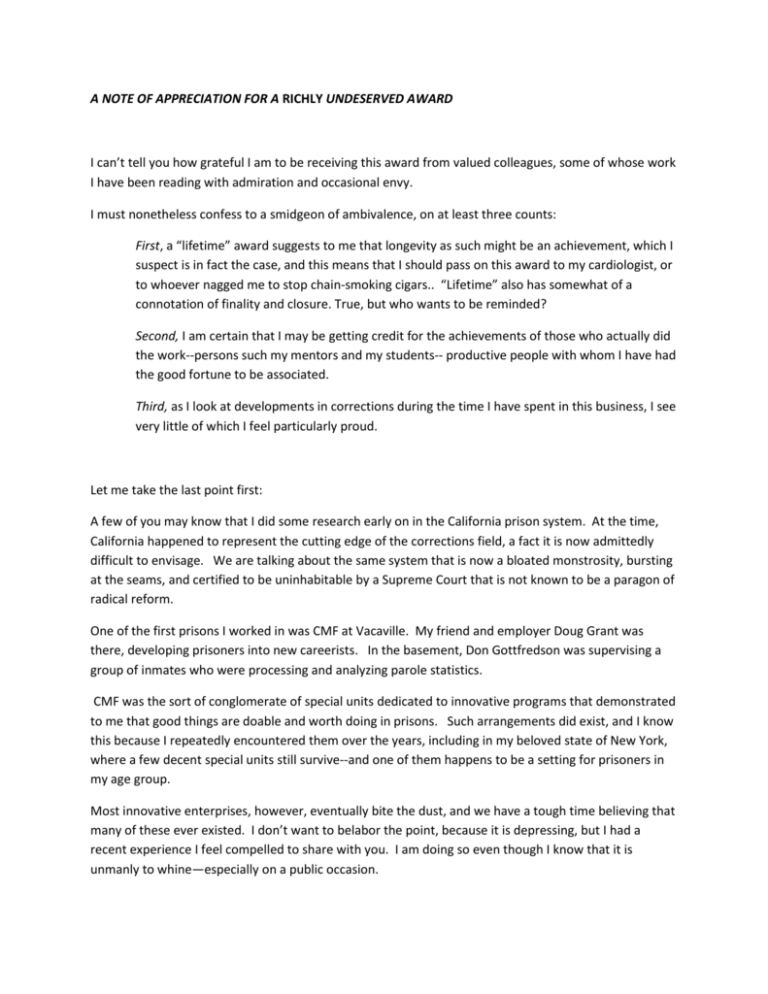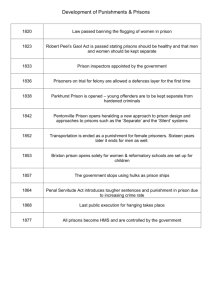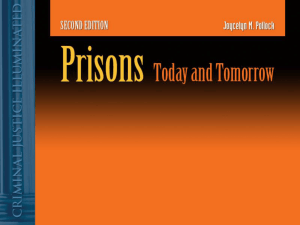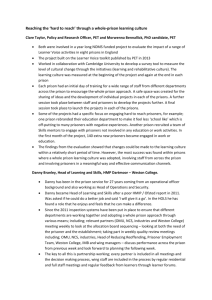click here
advertisement

A NOTE OF APPRECIATION FOR A RICHLY UNDESERVED AWARD I can’t tell you how grateful I am to be receiving this award from valued colleagues, some of whose work I have been reading with admiration and occasional envy. I must nonetheless confess to a smidgeon of ambivalence, on at least three counts: First, a “lifetime” award suggests to me that longevity as such might be an achievement, which I suspect is in fact the case, and this means that I should pass on this award to my cardiologist, or to whoever nagged me to stop chain-smoking cigars.. “Lifetime” also has somewhat of a connotation of finality and closure. True, but who wants to be reminded? Second, I am certain that I may be getting credit for the achievements of those who actually did the work--persons such my mentors and my students-- productive people with whom I have had the good fortune to be associated. Third, as I look at developments in corrections during the time I have spent in this business, I see very little of which I feel particularly proud. Let me take the last point first: A few of you may know that I did some research early on in the California prison system. At the time, California happened to represent the cutting edge of the corrections field, a fact it is now admittedly difficult to envisage. We are talking about the same system that is now a bloated monstrosity, bursting at the seams, and certified to be uninhabitable by a Supreme Court that is not known to be a paragon of radical reform. One of the first prisons I worked in was CMF at Vacaville. My friend and employer Doug Grant was there, developing prisoners into new careerists. In the basement, Don Gottfredson was supervising a group of inmates who were processing and analyzing parole statistics. CMF was the sort of conglomerate of special units dedicated to innovative programs that demonstrated to me that good things are doable and worth doing in prisons. Such arrangements did exist, and I know this because I repeatedly encountered them over the years, including in my beloved state of New York, where a few decent special units still survive--and one of them happens to be a setting for prisoners in my age group. Most innovative enterprises, however, eventually bite the dust, and we have a tough time believing that many of these ever existed. I don’t want to belabor the point, because it is depressing, but I had a recent experience I feel compelled to share with you. I am doing so even though I know that it is unmanly to whine—especially on a public occasion. A few years back I had the very good fortune to be associated with dear friends in the Scottish Prison Service, who let me witness nice things happening in what is called an open prison, and to be allowed a modicum of personal involvement. An open prison is a lovely sort of prison, if there is such a thing as a lovely prison--because it is an institution without walls or fences designed to facilitate reentry for longterm prisoners. But that is not the end of my Scottish story, because the government there is in the process of closing its open prisons, with only one exception. It is doing this either to save money or promote communitybased programs—depending on who you listen to. Since I was not born yesterday, I believe the sources that tell me that the point was to save money. This does not take special insight on my part, because the desire to save money explains almost everything that is happening in prisons today, all over the world. At this point I have the feeling that I may be overstaying my welcome, because the occasion really called for a GEE, THANKS, FOLKS!” and not a boring, hour-long dissertation. So let me therefore quickly come to my second and final point, about who may actually deserve the award you are offering me. As most of you know, prison administration is blessed with a capacity for indulging in grotesque casuistry, which permits Texas to institutionalize starvation by serving “brunch” at five in the morning, and allows officials in Colorado or California to tell a prisoner there, “You won’t see daylight for the next ten years because you belong to what we have called a “threat group.” But even in such a crazy world one runs into men and women occupying responsible positions, who are incredibly decent and compassionate human beings with rare imagination and courage. I have encountered such persons over the years pretty much wherever I have worked. I have learned a great deal from them, and have been able to do what little I have done thanks to the support they have afforded me. Unlike academics in ivory towers, it is those reform-minded practitioners who take real risks in the real word, and it is they who swim against the engulfing tide. If anyone deserves awards, it is these men and women, wherever they may still subsist. Hans Toch











